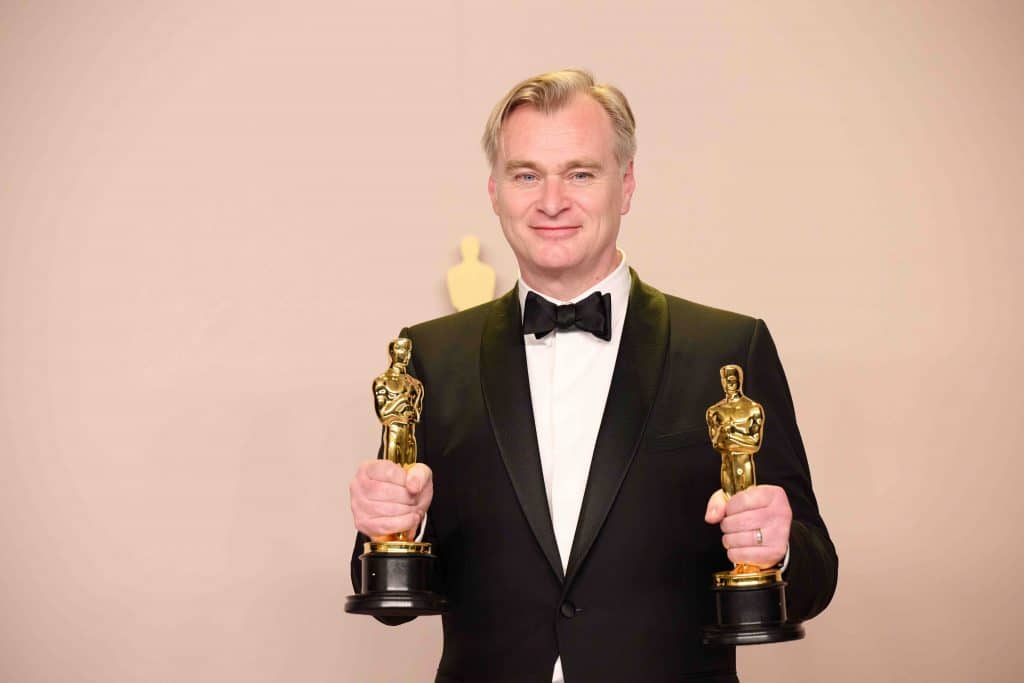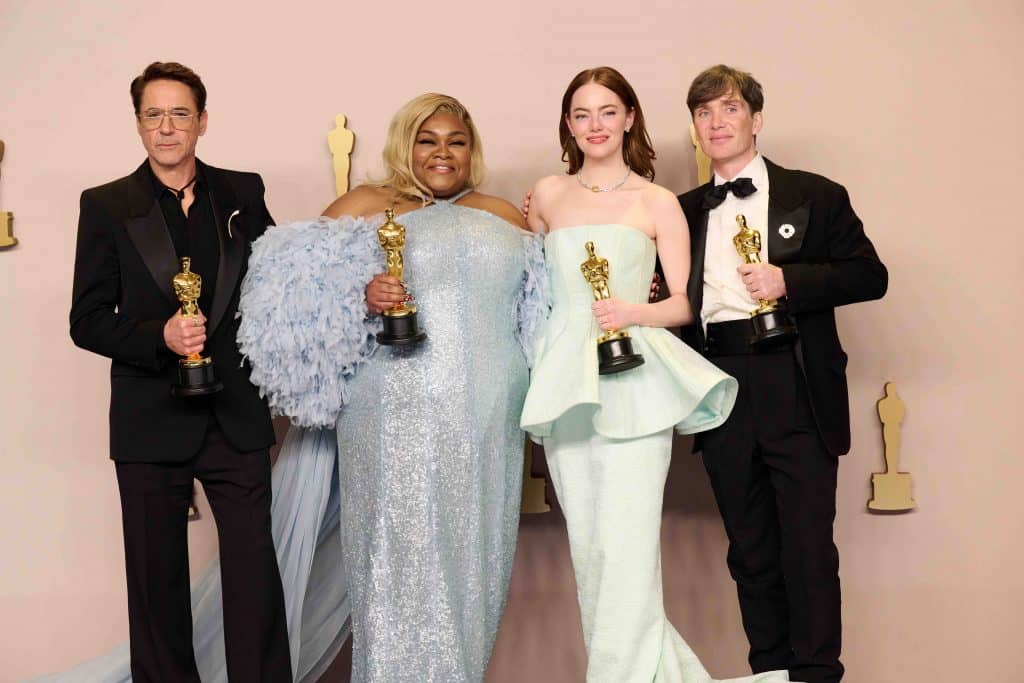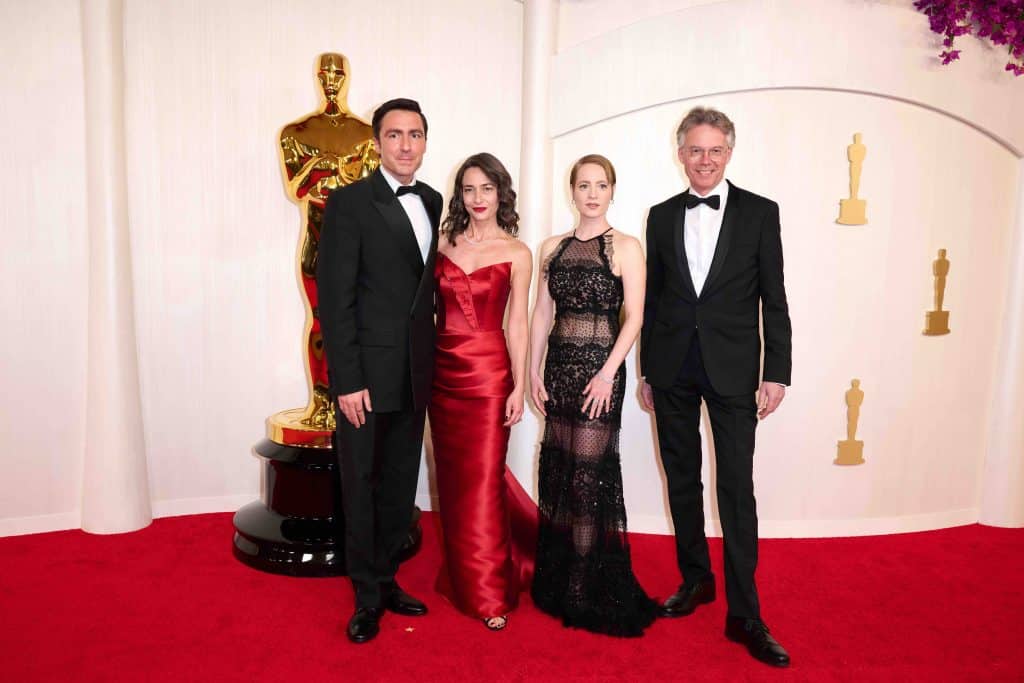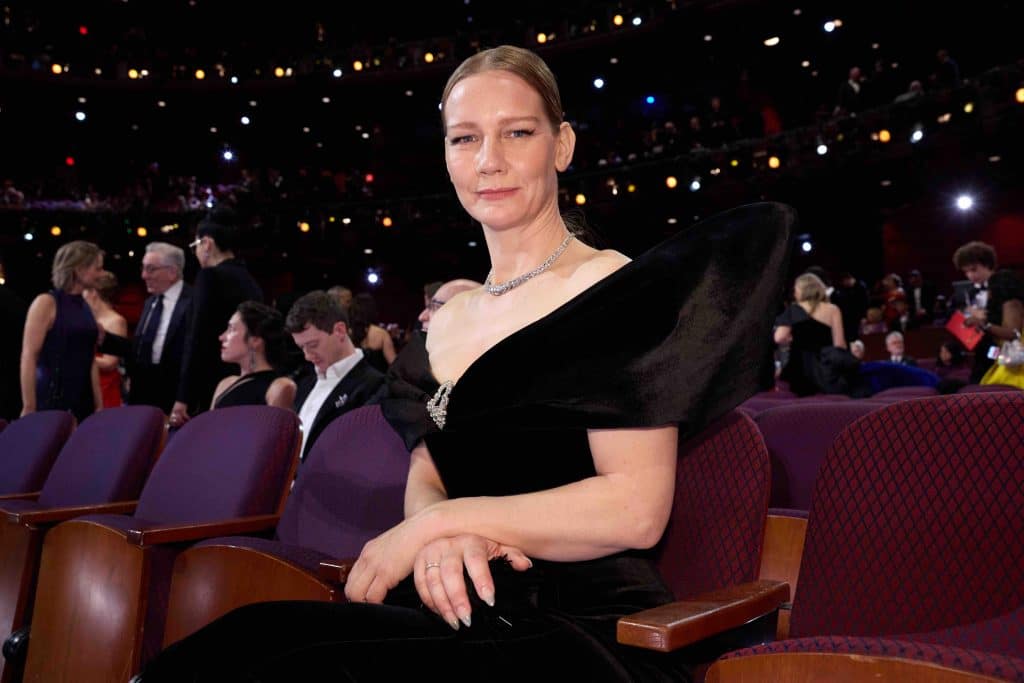Seven Oscars for „Oppenheimer“: For the first time since „The Lord of the Rings: The Return of the King“ 20 years ago, a blockbuster won at the Academy Awards, the first studio film since „No Country for Old Men“ to win Best Picture. The big surprise: Emma Stone beat Lily Gladstone to win her second statue for Best Actress in a Leading Role.

Well done, Oscar! In the run-up to the 96th Academy Awards, as in previous years, fort the longest time critics debated that an event like the Oscars is long outdated and no longer relevant, but it only took an agreeable event like the gala hosted for the fourth time by Jimmy Kimmel to put the eternal complainers and badmouthers in their place. Of course, this year’s Oscars also had the right films and names on offer to score points. The 23 awards presented united and reconciled classic Hollywood with a film industry in transition and upheaval in an almost ingenious way. For the first time since 2009 a studio production was awarded Best Picture and a genuine blockbuster was able to dominate the event for the first time since 2003 (and in this case win seven awards). Of course, „Oppenheimer“ was also the right film to receive the award – a classic biopic epic of the caliber of „Gandhi“ or „Amadeus“, a production made for a shower of awards: technically and artistically outstanding, ambitious in all respects and, despite a running time of 180 minutes, successful at the global box office, taking in more than 960 million dollars.
The award for „Oppenheimer“ creator Christopher Nolan as best director was long overdue: the 53-year-old Brit has already been nominated five times, and no one has been more vehemently committed to the cinematic experience in recent years than he. „We have made a film about the man who created the atomic bomb, and whether we like it or not, we all live in Oppenheimer’s world,“ said Nolan in his usual eloquent and moving speech. Nolan’s a class act. And with „Oppenheimer“, he ensured that Robert Downey Jr.’s amazing career entered a new phase again: from promising young star to a man with serious problems who was no longer employable, then becoming the most successful star in the world, on whose back the Marvel empire was built, to finally virtuoso artist, a thoroughbred actor through and through. And of course „Oppenheimer“ is also responsible for the fact that the previously always reliable and fascinating Irish character actor Cillian Murphy was able to become a star – and won the head-to-head race with Paul Giamatti for Best Actor at the Oscars. Other „Oppenheimer“ awards went to Best Cinematography, Best Editing and Best Music.

After the event had been dominated by rather atypical Oscar films in recent years, starting with the Korean Cannes winner „Parasite“ (the Best Film winners since 2020 are „Nomadland“, „CODA“ and „Everything Everywhere All At Once“), it seemed downright unusual and refreshing that a more conventional audience and prestige film – once the great strength of Hollywood – was able to win again. For understandable reasons, „Oppenheimer“ is not a prime example of a diverse production, and yet there was no grumbling: since its theatrical release in July, it was clear that Christopher Nolan’s exceptional work would be the film to beat on its way to winning at the Oscars. We will never know how close „Poor Things“, „The Zone of Interest“ or „Killers of the Flower Moon“ may have come to being the strongest contenders to take the crown from the triumphant filmmaker. It doesn’t matter: the favorite has prevailed. And probably rightly so.
At the same time, it still wasn’t an Oscar event like in the good old days. Because although a classic studio production dominated the award ceremony as it once did, many of the other prizes in this massive form would have been unthinkable ten years ago. For example, two Japanese films were successful – „The Boy and the Heron“ for Best Animated Film (quite surprisingly: „Spider-Man: Across the Spiderverse“ was a strong contender and had been considered by many as the favorite) and „Godzilla Minus One“ for Best Visual Effects. Justine Triet and her writing partner Arthur Harari picked up the award for Best Adapted Screenplay for „Anatomy of a Fall“ – a resounding slap in the face for the French Oscar selection committee, which had deemed the Cannes winner not strong enough for the „International Feature Film“ category and instead sent (the admittedly wonderful) „The Taste of Things“ into the race, only to be denied a nomination, while „Anatomy of a Fall“ made it to five nominations, including Best Picture, Best Director and Best Actress (Sandra Hüller). The race for International Film would have been much more exciting.

Without wanting to belittle Ilker Çatak’s (wonderful) „The Teachers’ Lounge“ or Wim Wenders‘ (wonderful) „Perfect Days“, but „The Zone of Interest“ (starring Sandra Hüller and Christoph Friedel and shot almost entirely in German) was the clear favorite here – and also the first British film to win in this category. Two black artists were also awarded Oscars: Da’Vine Joy Randolph for Best Supporting Actress for „The Holdovers“ (magnificent acceptance speech, right at the beginning of the award ceremony) and Cord Jefferson for „American Fiction“ for Best Adapted Screenplay – curiously, he forgot to thank the author of the book his film was based upon, Everett Percival, in his speech. Both had been the favorites in their respective categories.
Let’s move on to the biggest surprise of the evening (excluding the Oscar for Best Sound for „The Zone of Interest“, where „Oppenheimer“ had been the favorite): Emma Stone won her second Oscar for best actress (after „La La Land“ in 2016) for her performance in the overall four-time winner (and therefore the second strongest title of the night) „Poor Things“, beating Lily Gladstone from „Killers of the Flower Moon“, who had recently seemingly regained the upper hand in the race with her win at the SAG Awards. The narrative would have been classicly Oscar, classicly emotional. Gladstone was the first indigenous actress to be nominated for an Academy Award in this category and would have been the first indigenous winner. But after she was not nominated for a BAFTA Award in the first place, it became clear that she would not necessarily be able to rely on Academy members from abroad. And while, as the SAG Award suggests, she had the American actors on her side, three technical awards for „Poor Things“, in particular Best Make-up, suggested that Emma Stone could also count on the support of the trades. Objectively speaking, her performance is also a leading role through and through. As Bella Baxter, she is in almost every scene of Yorgos Lanthimos‘ film; it is unthinkable without her. Lily Gladstone, on the other hand, is strong in „Killers of the Flower Moon“, but also dependent on the male actors at her side. Let’s just say that it was a strategic mistake on Apple’s part to put her in the running for Best Actress. Her chances of winning as Best Supporting Actress would have been significantly higher, even if Da’vine Joy Randolph had proved to be a formidable competitor in this field.

In general, „Killers of the Flower Moon“ and the streamers were the big losers of the evening and would have gone away completely empty-handed had Netflix not secured an Oscar for Best Short Film: „The Wonderful Story of Henry Sugar“, based on a short story by Roald Dahl, also meant the first Academy Award for Wes Anderson. Martin Scorsese, who was victorious in 2006 with „The Departed“, had already been passed over recently for „The Irishman“ after having secured ten nominations and suffered an identical debacle this year. „Killers“ is a strong film, but apparently only a real favorite among the older members of the Academy. The competition proved to be simply as too strong. But it wasn’t just Apple that had to admit defeat, Netflix also failed to make a mark this year, save for the Anderson short movie: at least they could have hoped for an award for best make-up for „Maestro“. However, „Poor Things“ got in the way, opening the door for Emma Stone to win. If there was a loser among the studio films, it was „Barbie“, last year’s most successful film at the box office, which managed just one statue out of eight nominations – for Best Song, the second Oscar for pop superstar Billie Eilish (the audience would have been happier for „I’m Just Ken“ – Ryan Gosling’s performance on stage was one of the highlights).
Although the team from Germany did not win any prizes, they were not among the losers. On the contrary. The way Ilker Çatak, Ingo Fliess, Sandra Hüller and Wim Wenders promoted German film in Hollywood makes them real ambassadors for a new self-image among German filmmakers, but also a new self-confidence. In particular, hearts flew to „The Teachers’ Lounge“, the German Film Award winner that had not been good enough for the Berlinale competition. Supported by the Oscar power of the experienced US distributor Sony Pictures Classics, which had secured the American rights to Ingo Fliess‘ production immediately after the world premiere in the Berlinale Panorama, the American press was full of effusive praise for the film. So the Oscars were also a conceivably good event for German film – Simone Baumann from German Films can certainly be pleased.
The 96th Academy Awards were an event that took place in a heated environment: The American election campaign is already casting its shadow. The wars in Ukraine and Gaza were other topics that could not be ignored. And yet, despite numerous political statements in the acceptance speeches, especially Jonathan Glazer’s distorted and misinterpreted acceptance speech, and not least the award for „20 Days in Mariupol“ as best documentary film, the first Ukrainian production to win an Oscar, it was an upbeat, rather agreeable event – much needed soul balm for an industry that has had a tough year. Accordingly, Jimmy Kimmel was an ideal presenter, who delivered successful but not overly biting jokes. It was only at the very end that he lashed out when he read out a bizarre tweet from Donald J. Trump, which he had posted on Truth Social and in which he attempted to mock Kimmel in his usual crude manner. Kimmel was visibly delighted by the jibe, expressed his amazement that the former president had taken so much time to watch the whole gala and then said the line of the evening: „Isn’t it way past your jail time?“
Thomas Schultze
The 96th Academy Awards at a glance
Best Film
„Oppenheimer“
Best Director
Christopher Nolan („Oppenheimer“)
Best Actor
Cillian Murphy („Oppenheimer“)
Best Actress
Emma Stone („Poor Things“)
Best Supporting Actor
Robert Downey Jr. („Oppenheimer“)
Best Supporting Actress
Da’Vine Joy Randolph („The Holdovers“)
Best Original Screenplay
Justine Triet, Arthur Harari („Anatomy of a Case“)
Best Adapted Screenplay
Cord Jefferson („American Fiction“)
Best Cinematography
Hoyte van Hoytema („Oppenheimer“)
Best Editing
Jennifer Lame („Oppenheimer“)
Best Costume Design
Holly Waddington („Poor Things“)
Best Production Design
James Price, Shona Heath, Zsuzsa Mihalek („Poor Things“)
Best Make-up
Nadia Stacey, Mark Coulier, Josh Weston („Poor Things“)
Best Sound
Tarn Willers, Johnnie Burn („The Zone of Interest“)
Best Visual Effects
Takashi Yamazaki, Kiyoko Shibuya, Masaki Takahashi, Tatsuji Nojima („Godzilla Minus One“)
Best Music
Ludwig Göransson („Oppenheimer“)
Best Original Song
„What Was I Made For?“ by Billie Eilish and Finneas O’Connell („Barbie“)
Best Animated Film
„The Boy and the Heron“
Best International Film
„The Zone of Interest“
Best Documentary Film
„20 Days in Mariupol“
Best Documentary Short Film
„The Last Repair Shop“
Best Short Film
„The Wonderful Story of Henry Sugar“
Best Animated Short Film
„The War Is Over“
